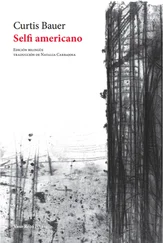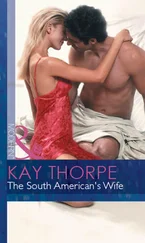Curtis Sittenfeld - American Wife
Здесь есть возможность читать онлайн «Curtis Sittenfeld - American Wife» весь текст электронной книги совершенно бесплатно (целиком полную версию без сокращений). В некоторых случаях можно слушать аудио, скачать через торрент в формате fb2 и присутствует краткое содержание. Жанр: Старинная литература, на английском языке. Описание произведения, (предисловие) а так же отзывы посетителей доступны на портале библиотеки ЛибКат.
- Название:American Wife
- Автор:
- Жанр:
- Год:неизвестен
- ISBN:нет данных
- Рейтинг книги:4 / 5. Голосов: 1
-
Избранное:Добавить в избранное
- Отзывы:
-
Ваша оценка:
- 80
- 1
- 2
- 3
- 4
- 5
American Wife: краткое содержание, описание и аннотация
Предлагаем к чтению аннотацию, описание, краткое содержание или предисловие (зависит от того, что написал сам автор книги «American Wife»). Если вы не нашли необходимую информацию о книге — напишите в комментариях, мы постараемся отыскать её.
American Wife — читать онлайн бесплатно полную книгу (весь текст) целиком
Ниже представлен текст книги, разбитый по страницам. Система сохранения места последней прочитанной страницы, позволяет с удобством читать онлайн бесплатно книгу «American Wife», без необходимости каждый раз заново искать на чём Вы остановились. Поставьте закладку, и сможете в любой момент перейти на страницу, на которой закончили чтение.
Интервал:
Закладка:
What was it I said to Gladys Wycomb earlier today? My husband’s administration is different from me. Also: He is the one the American people elected.
“I saw you interviewed a few months back,” Edgar Franklin says. “The lady who talked to you, she said, ‘How do you and your husband spend your quiet time?’ And you said, ‘We read, we play Scrabble, the president watches sports.’ Mrs. Blackwell, that’s all anyone wants.”
“I’m sorry,” I say. “I’m very sorry.”
“Nate’s mother passed on in 1996,” Edgar Franklin says. “She was a wonderful cook, and she never had to follow a recipe. Meat loaf, black-eyed peas, macaroni and cheese, everything she made was delicious. Well, after she was gone, it was just Nate and me, and he was still a youngster. I hired a lady to help take care of him and make our meals during the week, and come the weekend, Nate and I had spaghetti with sauce and called it a bachelor dinner. We’d say if we turned on the stove, it counted as cooking.” We exchange a wry smile; Edgar Franklin does not hate me, at least not the way Gladys Wycomb did.
“Now, after I retired,” he continues, “a few years passed, and I thought, It’s about time I learn to cook. I bought cookbooks, and I read through them, and at first there were only a few recipes I could try—there were words I didn’t even know the meaning of, parboil and braise and what have you. But I improved. I had some humble moments that no one but me ever needs to hear about, but I improved. I had a plan that when Nate got back, I would make him a full dinner, and wouldn’t he be surprised: pork tenderloin with mushrooms and olives, a fresh salad, some homemade bread. I’d ordered a breadmaker from the Internet—people are very impressed by homemade bread if they don’t know all you do is put in the ingredients and press a button. I tried the different kinds to find the best one, because Nate didn’t care for raisins, but you could do herb bread or sourdough or any number of them.” I know what Edgar Franklin will say next, and I’m not wrong, though the way he says it is more restrained, less maudlin, than it could be. He says, “I never did make that dinner for my son.”
The limousine is quiet—outside, agents stand on all four sides—and after a minute, I say, “I’ve been close to people who died young, and I know it’s terrible in a way that’s different from other deaths. It feels like it’s unendurable, but you endure it because you don’t have a choice.” I pause. “If there were anything I could do to bring back your son, to change what happened, I would.”
“It’d be rough no matter how he was taken, that much I know,” Edgar Franklin says. “But it wasn’t a cause worth dying for. Weapons of mass destruction that were never found? Access to oil fields? Politicians playing cowboys and Indians? I guess those sound like good reasons when it’s not your son.”
Edgar Franklin is wearing khaki pants and a white short-sleeved button-down shirt beneath which I see the shadow of a sleeveless undershirt. He also wears a watch with a black leather strap, a plain gold wedding band on his left hand, and brown leather loafers with tassels. The tassels are what do it; they break my heart. I look directly at him and say, “I think you’re right. It’s time for us to end the war and bring home the troops.”
ON NOVEMBER 7, 2000, which was Election Day, we voted when the polls opened in Madison; Charlie and I voted at the same time, and outside the curtained booths at the elementary school near the governor’s mansion, we joined hands and, with our free outer arms, waved to the assembled journalists, photographers, cameramen, and well-wishers. We then boarded a plane and traveled to our final campaign stops, a rally in Portland, Oregon—Oregon was known to be a close race—and another in Minneapolis before we flew back to Wisconsin and rode to the hotel, where we were planning to watch the election returns in a suite with various staff members and relatives, including Arnold Prouhet and his wife and family, and all the Blackwells. Our nephews Harry and Drew had been campaigning full-time on Charlie’s behalf since the beginning, and Harold and Ed had also done extensive fund-raising. That night, in addition to Ella, Harold, and Priscilla, every single one of Charlie’s brothers, their wives, and their children, most of them married with children of their own, had come into town, and this all-hands-on-deck representation was quite touching to both Charlie and me. Someone had ordered dozens of pizzas, and the suite was a chaos of nerves and excitement; the only calm moment, which I appreciated, was when Reverend Randy led us in prayer before we ate. That the election would be tight was no secret, but Hank was confident Charlie would win, and Charlie was confident, too. Not because of anything we ever said to each other but due more to our exchanged glances, due to what we didn’t say, I was pretty sure that my father-in-law and I were the only ones who had serious doubts about Charlie’s victory. Harold was retired, or “actively retired,” as he liked to say, but he still had many close ties inside the Republican National Committee, and his seeming skepticism struck me as informed, whereas mine was based more on intuition. Whether I wanted Charlie to win felt beside the point by then. Sure I did, and of course I didn’t. I wanted him to win the way you want your hometown baseball team to win, or your daughter’s high school soccer team. I wanted that in-the-moment triumph, wanted our emotions to build to celebration rather than sink into disappointment, which was not the same as wanting the triumph’s long-term consequences. I wanted Charlie to win the election, but I didn’t want him to be president. For eighteen months, we’d been caught up, both of us, in a great tumult of chanting crowds holding red and blue signs, of strategizing advisers and pollsters and reporters, of waving flags, brass bands, planes and airports and hotels, schools and county fairs and nursing homes. It had been fun sometimes and exhausting more often, and now it was almost finished. The hotel ballroom was reserved for the victory party, and one of the reasons I still knew that I wasn’t cut out for politics was the built-in mortification of a victory party when there was a perfectly good chance there wouldn’t be a victory.
As the hours passed, it became clear that the entire election came down to the state of Florida—it reminded me of baseball games, how all nine innings could somehow shrink to one final pitch—and just before seven our time, eight on the East Coast, the networks announced that Florida’s twenty-five electoral votes would go to Charlie’s opponent. The suite became quiet except for our niece Liza’s three-month-old son, Parker, who was wailing inconsolably. Everyone looked at Charlie, or they tried not to look at him—he was sitting on a sofa near the large television, Ella on one side and Hank on the other—and I wasn’t surprised when, within a few minutes, Ella whispered in my ear, “Dad wants to leave.”
Harold, Priscilla, Hank, and Debbie Bell accompanied us back to the governor’s mansion, but everyone else stayed behind. As we walked through the lobby and climbed in the SUVs that would take us home, none of us spoke to the hordes of media who called out, though I smiled at a few of them; there were many we knew well by this point. It wasn’t as if they’d need encouragement—they were following us back to the mansion no matter what, and the reality was that we’d have to let them inside, Charlie would have to talk to them, before the end of the night.
At the mansion, we congregated in the second-floor living room, and I was tempted to suggest a game of Scrabble or euchre, but I don’t think anything could have distracted us. Everyone’s personalities seemed in this moment both reduced and magnified, distilled to some essential quality: Debbie Bell was angry, Hank was insisting that Florida couldn’t have gone to Charlie’s opponent and there must have been an error, Harold was stoic, Priscilla was disdainful of Charlie’s opponent and the fools who would elect him, Ella was sweetly protective of her father, I was quiet, and Charlie was wounded—boyishly so, it seemed. He was speaking less than anyone else, and Priscilla was speaking the most. “That smug, sanctimonious tree-hugger,” she’d say when images of Charlie’s opponent flashed on-screen. “If that’s the man the American people want for president, then they deserve him.” I think election nights were particularly evocative and fraught for Priscilla and Harold—we were, of course, sitting in the governor’s mansion they had occupied for eight years, where Charlie himself had spent most of his adolescence.
Читать дальшеИнтервал:
Закладка:
Похожие книги на «American Wife»
Представляем Вашему вниманию похожие книги на «American Wife» списком для выбора. Мы отобрали схожую по названию и смыслу литературу в надежде предоставить читателям больше вариантов отыскать новые, интересные, ещё непрочитанные произведения.
Обсуждение, отзывы о книге «American Wife» и просто собственные мнения читателей. Оставьте ваши комментарии, напишите, что Вы думаете о произведении, его смысле или главных героях. Укажите что конкретно понравилось, а что нет, и почему Вы так считаете.












